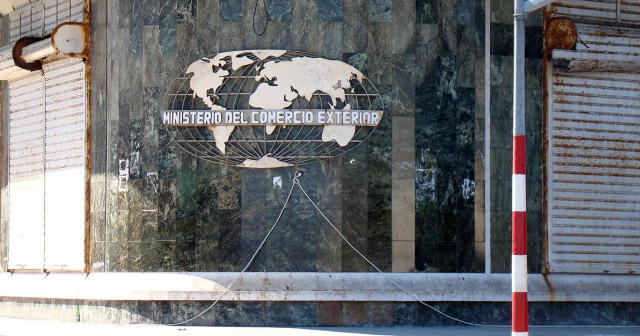
In the past year, we have witnessed an economic and social phenomenon that has shaken the foundations of the Cuban economic model: the rise of Micro, Small, and Medium Enterprises (MSMEs). This small group of entrepreneurs has achieved in just a few months what the Cuban government has not been able to accomplish in decades with its multiple attempts to revitalize the economy through various forms of state-controlled retail commerce in foreign currencies.
From "currency stores" to "diplomatic stores," through "gold and silver stores," "foreign currency collection stores" (TRD), and more recently, "stores in MLC" (Freely Convertible Currency), all these initiatives have had a common denominator: inefficiency and an inability to meet the needs of the Cuban population. Despite the grandiose names and promises of modernization and progress, these stores have only served to highlight the limitations of a centralized economic system that does not respond to reality or the demands of the people.
SMEs, on the other hand, have emerged as compelling evidence that Cubans, when given the opportunity, have the ability to innovate, create, and thrive. These small businesses have shown an agility and efficiency that state-owned stores have never been able to achieve. While the shelves of stores in MLC are often empty, SMEs have managed to identify market niches, offer quality products and services, and, most importantly, create jobs and invigorate the local economy.
Almost as important as the creation of these businesses themselves is the fact that these stores largely operate in national currency. In micro, small, and medium-sized enterprises, payments in Cuban pesos are usually accepted. How strange! The government has spent more than 60 years disregarding this currency to create stores with products "from abroad," inventing currencies, certificates, coupons, electronic cards, and then devaluing and eliminating their own currencies (such as the CUC) that they themselves invented to avoid charging in pesos.
Why have state-owned stores failed? The answer is simple: bureaucracy, corruption, and lack of real incentives to improve. Employees of these stores, often poorly paid and demotivated (from the store seller to the buyer and importer), have no reason to strive to offer good service or to look for ways to optimize resources. In contrast, MIPYMES entrepreneurs are directly involved in the success of their businesses. Every satisfied customer, every sale made, every innovation implemented translates directly into benefits for them, their families, and their employees.
In addition to this, the government ends up using the dollars collected for other things and does not use them to restock stores. On the contrary, small and medium-sized enterprises allocate all acquired dollars to import and purchase more merchandise, ensuring a constant flow of products and improving customer satisfaction. That is what Gil told us about relaunching the economy, which they never did.
The Cuban government has tried to control and limit the growth of SMEs by imposing taxes, restrictions, and regulations aimed at slowing down their progress. However, despite these obstacles, entrepreneurs have learned to navigate through the complex legal framework and find ways to make their businesses thrive, even in such a hostile environment.
The success of small and medium-sized enterprises is a mirror that reflects the failure of the regime. For decades, the government has tried to impose an economic model that does not work, while in a few months, a group of entrepreneurs has shown that another Cuba is possible, a Cuba where creativity, innovation, and personal effort are rewarded.
It is time for the Cuban government to step aside, to recognize that the socialist enterprise is not the path to prosperity in Cuba. Let Cubans have factories, industries, produce clothing, footwear, sugar, rum, tobacco. Free up imports, eliminate taxes (and subsidies to socialist companies), truly liberate the countryside. They have to step aside and let the nation thrive. There is a growing consensus that the Cuban government should acknowledge the failure of the socialist enterprise, allow small and medium-sized enterprises to operate with greater freedom.
The Cuban government should consider several measures to liberalize the economy:
Privatization of State-Owned Enterprises: Allowing the privatization of state-owned enterprises and promoting the creation of new private companies in all economic sectors. This will increase efficiency and productivity by introducing competition in the market.
Tax System Reform: Reduce and simplify taxes to facilitate the creation and operation of new businesses. Eliminate excessive taxes that stifle private initiative and maintain a fair tax system that encourages investment.
Elimination of Subsidies to State Enterprises: Gradually eliminate subsidies to inefficient state-owned enterprises to create a level playing field where private companies can compete on an equal footing.
Trade Liberalization: Abolishing restrictions on imports and exports. Easing access to foreign goods and services will improve the quality of life for Cubans and allow local businesses to access cutting-edge inputs and technology.
Promotion of Foreign Investment: Create a legal and administrative environment favorable for foreign investment. Provide legal guarantees and protect intellectual property to attract international capital and knowledge.
Decentralization of Agricultural Control: Allowing farmers to have full control of their lands and crops. Removing restrictions on what and how much they can produce, and enabling the free sale of their products in the national and international market.
Deregulation of the Labor Market: Flexibilizing labor laws to allow companies to hire and manage their workforce efficiently. Establishing a fair minimum wage and ensuring basic labor rights, but allowing for more flexible labor negotiations.
Infrastructure Development: Investing in critical infrastructures such as roads, ports, and telecommunication networks. Facilitating public-private collaboration for the development of infrastructure projects that benefit the economy as a whole.
Support for Entrepreneurship: Create support programs for entrepreneurs that include access to financing, business training, and mentoring. Establish business incubators and accelerators to promote innovation and the development of new companies.
Will the Cuban government implement any of this? Probably not, they are still harping on the socialist enterprise as the center of the economy. Failing to take advantage of the environment created by the measures announced today by the Biden administration would be unwise. They just need to remember what happened when they scorned and attacked Obama's opening. There's Trump again, ready to repeat history.
What do you think?
COMMENTFiled under:
Opinion Article: The statements and opinions expressed in this article are the sole responsibility of its author and do not necessarily represent the point of view of CiberCuba.






